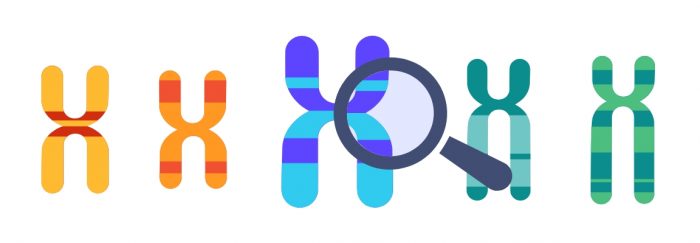Monogenic inherited diseases are caused by mutation or alteration in the DNA sequence of a single gene. They are known as Mendelian hereditary diseases, as they are transmitted to offspring according to Mendel’s laws. As they are genetic alterations, the presence or absence of them can be determined with a genetic test, so a person will know whether or not he or she is a carrier of a monogenic hereditary disease.
Currently, it is estimated that more than 6,000 monogenic diseases have been identified and their prevalence is estimated at one case per 200 births. However, there are many more cases of carriers, so that the alterations could be transmitted for generations without knowing of the existence of the presence of a mutation in a certain gene.
Mendelian inherited diseases can be transmitted in a recessive or dominant manner. Autosomal recessive diseases are those in which two copies of the mutated gene are needed for the disease to manifest itself, i.e. one copy from the mother and one copy from the father. If only one copy is inherited, the person will be a carrier but will not develop the disease. An example of this type of disease is cystic fibrosis.

On the other hand, autosomal dominant diseases require only one copy of the mutated gene for the person to develop the disease. Usually, the parent will also be affected. The chance of passing on the mutated gene is 50%, as the parent will have one healthy copy and one diseased copy. An example of this type of disease is Huntington’s disease.
These two ways of transmitting the disease are on autosomal chromosomes, i.e. non-sex chromosomes. However, there are diseases linked to the sex chromosomes, i.e. the X or Y chromosomes.

Diseases with dominant X-linked inheritance affect both males and females. In this case, both sexes manifest the disease with only one copy. In contrast, diseases with X-linked recessive inheritance affect more males than females. This is because the male manifests the disease with only one copy, whereas the female needs both copies of the mutated gene to be affected. For example, haemophilia is a disease that affects more men than women.
In addition, there are diseases with inheritance linked to the Y chromosome that can therefore only be suffered by men. All affected males will pass the disease on to their children. However, this type of inheritance is very rare.
What if my partner and I are carriers of monogenic diseases?
For couples who suspect that they are carriers of a monogenic disease, it is advisable to have a genetic test for couples to determine the presence or absence of these mutations. If both partners are carriers, they should seek genetic counselling to explain the different reproductive options available on the market today to avoid transmitting the mutations to their offspring.



